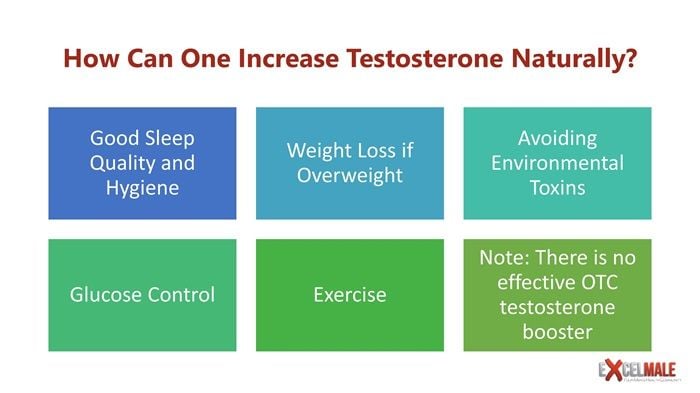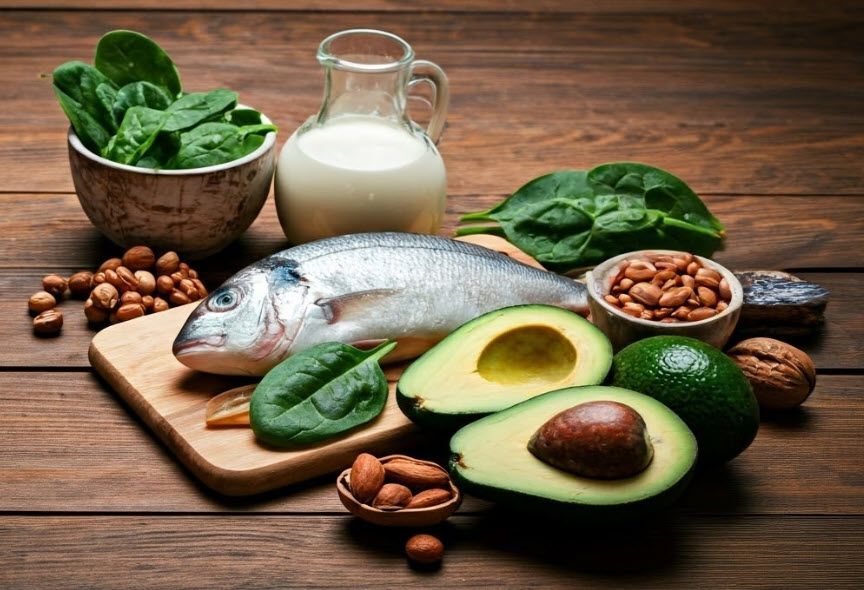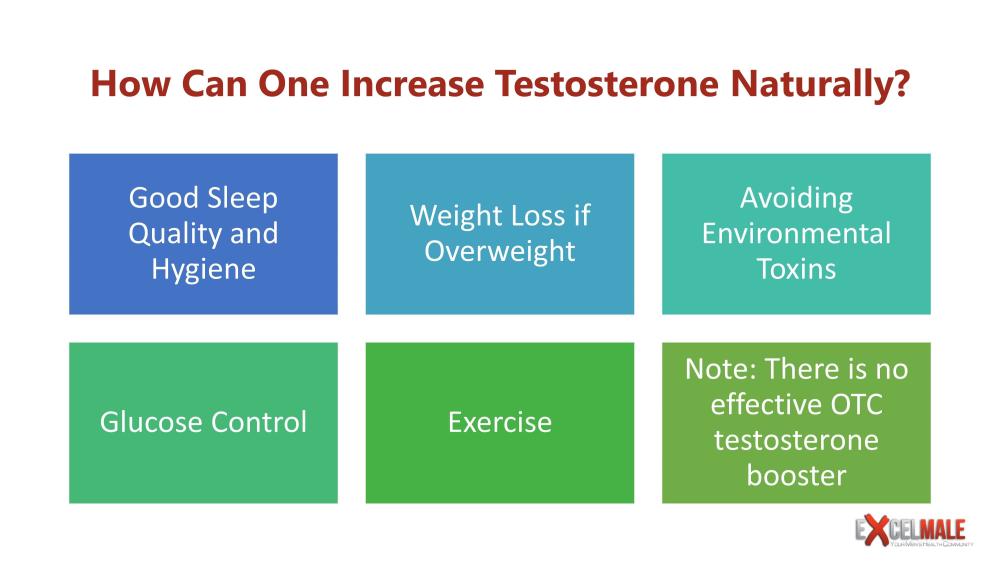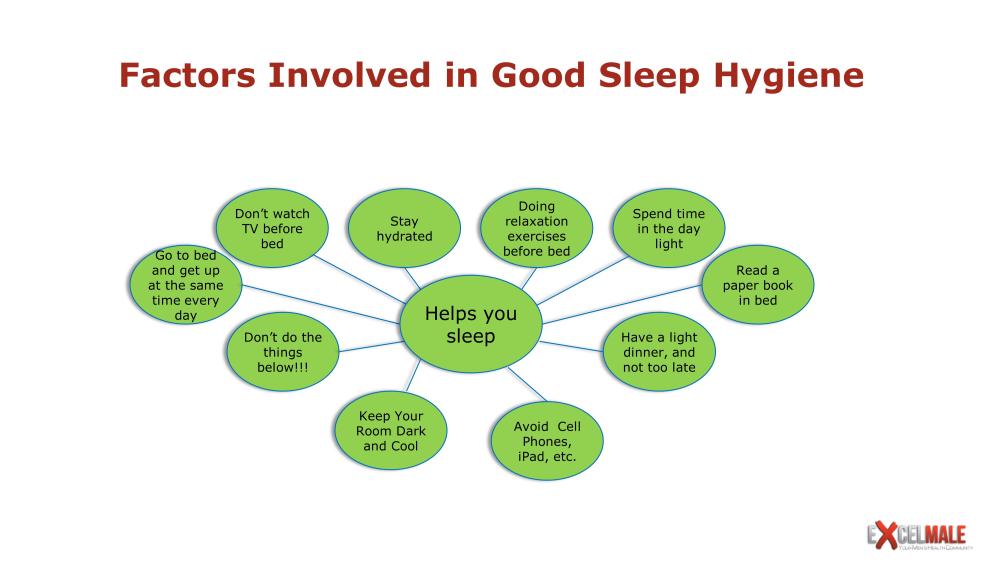How Do You Increase Testosterone?: 10 Easy Ways

Key Highlights
- Testosterone levels naturally decline with age, but there are natural strategies to boost them
- Strength training and high-intensity workouts can help increase muscle mass and testosterone levels
- A balanced diet rich in proteins, fats, and carbs, including fatty fish and whole foods, can support testosterone production
- Minimizing stress levels and regulating cortisol production can help maintain optimal testosterone levels
- Sufficient vitamin D intake through sun exposure or supplements is important for testosterone levels
- Getting quality sleep, considering natural testosterone-boosting supplements like Ashwagandha, reducing alcohol intake, maintaining a healthy weight, incorporating healthy fats into the diet, and staying hydrated are additional ways to boost testosterone naturally
Introduction
Testosterone is a vital hormone that plays a crucial role in both men and women's health. It affects various bodily functions, including sperm production, sex drive, muscle strength, bone growth, and even hair growth. However, testosterone levels naturally decline as we age, which can have a significant impact on our overall health and well-being. In addition to men, women and people assigned female at birth also produce testosterone, making it important for their sex drive, bone and muscle health, energy, and mood. However, beyond puberty, a woman's body mainly converts it to estrogen, making it interesting as a possible remedy for menopause symptoms like depression, bone loss, and sexual problems. While testosterone therapy and marketed testosterone supplements are options, they may come with disadvantages and potential risks. As a result, many individuals are turning to natural strategies, such as proper nutrition and exercise, to boost their testosterone levels.
In this blog, we will explore 10 easy ways to naturally boost testosterone levels. These strategies involve simple lifestyle changes, dietary modifications, and incorporating natural supplements that can support testosterone production in the body. By implementing these all-natural ways, men can enhance their physical health, improve their mental well-being, and maintain optimal levels of testosterone, even in the face of low levels of testosterone as they age.
How Do You Increase Testosterone Naturally?: 10 Natural Strategies
Boosting testosterone levels naturally is possible with simple lifestyle changes and dietary modifications. By incorporating the following strategies into your daily routine, you can support testosterone production and maintain optimal levels:
1. Opt for Strength Training and High-Intensity Workouts
Strength training and high-intensity workouts are excellent ways to boost testosterone levels naturally. These types of exercises stimulate muscle growth and increase muscle mass, which can have a positive impact on testosterone production. As you engage in strength training, your body releases testosterone from the adrenal glands to support muscle repair and growth. Aim for regular workouts that focus on compound exercises, such as squats, deadlifts, and bench presses. Incorporating high-intensity interval training (HIIT) into your exercise routine can further enhance testosterone production. By including these types of physical activities in your fitness regimen, you can optimize your testosterone levels and enjoy the benefits of increased muscle mass and strength. Additionally, make sure to prioritize getting enough sleep each night, as this is crucial for maintaining healthy testosterone levels. Your body produces the hormone while you sleep, and your levels are typically highest in the morning. So, aim for 7-9 hours of quality sleep each night to support natural testosterone production.
2. Consume a Balanced Diet Rich in Proteins, Fats, and Carbs
A balanced diet plays a crucial role in supporting testosterone production. Including specific nutrients in your diet can have a positive impact on your hormone levels. Here are some dietary recommendations to boost testosterone naturally:
- Include plenty of protein-rich foods like lean meats, poultry, fish, eggs, and dairy products. Protein is essential for muscle growth and testosterone production.
- Incorporate healthy fats into your diet from sources like avocados, nuts, seeds, and fatty fish. These fats are necessary for hormone synthesis and testosterone production.
- Opt for whole foods instead of processed foods. Whole foods provide essential vitamins, minerals, and antioxidants that support overall health and optimal testosterone levels.
- Include fatty fish such as salmon, mackerel, and sardines in your diet. These fish are rich in omega-3 fatty acids, which have been associated with increased testosterone levels.
- Avoid excessive consumption of sugary foods and processed snacks, as they can negatively impact testosterone production.

By following a balanced diet that includes these recommendations, you can naturally support testosterone production and maintain optimal levels.
3. Minimize Stress Levels and Regulate Cortisol Production
Chronic stress can have a detrimental effect on testosterone levels. When the body is under stress, it produces cortisol, a hormone that can inhibit testosterone production. To naturally boost testosterone, it is important to minimize stress levels and regulate cortisol production. Here are some strategies to achieve this:
- Practice stress-reducing techniques such as meditation, deep breathing exercises, or yoga. These activities can help calm the mind and lower cortisol levels.
- Engage in regular physical activity, as exercise has been shown to reduce stress and promote overall well-being.
- Prioritize self-care activities that bring you joy and help you relax. This can include hobbies, spending time with loved ones, or engaging in activities that help you unwind.
- Get enough restful sleep, as sleep deprivation can increase cortisol levels and negatively impact testosterone production.
- Consider incorporating adaptogenic herbs, such as ashwagandha, into your daily routine. These herbs have been shown to help the body adapt to stress and regulate cortisol levels.
By implementing these stress-reducing strategies, you can support testosterone production and maintain optimal levels for overall health and well-being.
4. Ensure Sufficient Vitamin D Intake Through Sun Exposure or Supplements
Vitamin D is a crucial nutrient that supports various bodily functions, including testosterone production. However, many people are deficient in vitamin D, especially during the winter months or in regions with limited sun exposure. To ensure sufficient vitamin D levels and support testosterone production, consider the following:
- Spend time outdoors in the sunlight. Aim for at least 15 minutes of direct sunlight exposure on your skin each day.
- If getting enough sun exposure is challenging, consider taking a vitamin D supplement. Consult with your healthcare provider to determine the appropriate dosage for your needs.
- Incorporate foods that are rich in vitamin D into your diet. Fatty fish, fortified milk, and dairy products are excellent sources of this vital nutrient.
By maintaining adequate vitamin D levels, you can support testosterone production and enjoy the benefits of optimal hormonal balance.
5. Get Quality Sleep and Maintain a Healthy Sleep Schedule
Getting enough quality sleep is essential for overall health and well-being, including testosterone production. Inadequate sleep can disrupt hormone levels and contribute to low testosterone. To optimize your sleep and support testosterone production, consider the following:
- Aim for 7-8 hours of sleep per night. Establish a consistent sleep schedule by going to bed and waking up at the same time each day.
- Create a sleep-friendly environment by keeping your bedroom dark, quiet, and at a comfortable temperature.
- Avoid stimulating activities, such as using electronic devices or consuming caffeine, close to bedtime.
- Practice relaxation techniques before bed, such as reading a book, taking a warm bath, or practicing deep breathing exercises.
- If you struggle with sleep issues, consider speaking with a healthcare professional who can provide guidance and support.
By prioritizing quality sleep and maintaining a healthy sleep schedule, you can optimize testosterone production and support overall health and well-being.
6. Consider Natural Testosterone-Boosting Supplements Like Ashwagandha
In addition to lifestyle changes and dietary modifications, natural testosterone-boosting supplements can also support optimal hormone levels. One such supplement is Ashwagandha, an adaptogenic herb that has been used in traditional medicine for centuries. Ashwagandha has been shown to have positive effects on testosterone levels and overall male reproductive health, making it a great option for those looking to improve male fertility and address sexual dysfunction. Consider the following when incorporating Ashwagandha or other natural testosterone boosters into your routine:
- Consult with a healthcare professional before starting any new supplement to ensure it is safe and appropriate for you.
- Follow the recommended dosage guidelines provided by the supplement manufacturer.
- Give the supplement time to take effect. It may take several weeks or months to notice the full benefits.
- Monitor your body's response and adjust dosage or discontinue use if any adverse effects occur.
Warning: Most testosterone boosters do not work.
7. Reduce the Intake of Alcohol and Avoid Estrogen-like Compounds
Excessive alcohol consumption can negatively impact testosterone levels. Alcohol can increase the conversion of testosterone into estrogen, leading to hormonal imbalances. To support testosterone production, it is important to reduce alcohol intake and avoid estrogen-like compounds. Consider the following:
- Limit alcohol consumption to moderate levels. The Centers for Disease Control and Prevention (CDC) defines moderate drinking as up to one drink per day for men.
- Avoid heavy alcohol consumption, as it can significantly impact testosterone levels and overall health.
- Be mindful of other sources of estrogen-like compounds, such as certain medications or environmental factors. Minimize exposure to these compounds to support testosterone production.
By reducing alcohol intake and avoiding estrogen-like compounds, you can optimize testosterone levels and maintain optimal hormonal balance.
8. Maintain a Healthy Weight and Body Fat Percentage
Maintaining a healthy weight and body fat percentage is important for overall health and testosterone production. Excess body fat, especially around the abdomen, can contribute to low testosterone levels. To support testosterone production and maintain a healthy weight, consider the following:
- Engage in regular exercise that includes both cardiovascular activities and strength training. This can help burn excess body fat and promote muscle growth.
- Follow a balanced diet that includes whole foods, lean proteins, healthy fats, and complex carbohydrates. Avoid excessive calorie consumption and prioritize nutrient-dense foods.
- Set realistic weight loss goals if necessary. Gradual and sustainable weight loss can have a positive impact on testosterone levels and overall health.
By maintaining a healthy weight and body fat percentage, you can support testosterone production and improve your overall well-being.
9. Incorporate Healthy Fats into Your Diet from Avocados, Nuts, and Seeds
Including healthy fats in your diet is important for testosterone production and overall health. Healthy fats are crucial for hormone synthesis and play a role in testosterone production. Consider the following when incorporating healthy fats into your diet:
- Include foods such as avocados, nuts, and seeds, which are excellent sources of healthy fats.
- Use olive oil or avocado oil for cooking and dressing salads.
- Avoid unhealthy fats found in processed and fried foods, as they can have a negative impact on testosterone levels.
By incorporating healthy fats into your diet, you can support testosterone production and promote optimal hormonal balance.
10. Stay Hydrated and Avoid Excessive Sugar and Processed Foods
Staying hydrated and making mindful food choices can support testosterone production and overall health. Consider the following:
- Drink plenty of water throughout the day to stay hydrated. Proper hydration is important for optimal bodily functions, including hormone synthesis.
- Limit your intake of sugary foods and beverages, as excessive sugar consumption can negatively impact testosterone levels and overall health.
- Minimize your consumption of processed foods, which often contain additives and preservatives that can disrupt hormone balance.
By staying hydrated and making healthy food choices, you can support testosterone production and maintain optimal hormonal balance.
Understanding the Impact of Testosterone on Health
Testosterone plays a crucial role in men's health, impacting various bodily functions. It affects sex drive, muscle strength, bone density, and overall well-being. Low testosterone levels, also known as testosterone deficiency, can lead to a range of symptoms, including decreased sex drive, loss of muscle mass, fatigue, and mood changes. Understanding the impact of testosterone on health, including the symptoms of low testosterone, is important for optimizing hormone levels and maintaining overall well-being.
The Role of Testosterone in Male Health and Well-being
Testosterone is often referred to as the male sex hormone, but its role goes beyond sexual function. It plays a significant role in male health and well-being, including muscle mass, bone density, red blood cell production, mood regulation, and cognitive function. Maintaining optimal testosterone levels is important for overall health, vitality, and quality of life, making it a crucial aspect of men’s health. By understanding the role of testosterone in male health and well-being, men can prioritize strategies to support testosterone production and maintain optimal hormone levels.
How Low Testosterone Affects Physical and Mental Health
Low testosterone levels can have a significant impact on both physical and mental health. Physically, low testosterone can lead to decreased muscle mass, increased body fat, reduced bone density, and loss of energy. Mentally, low testosterone can contribute to mood swings, irritability, depression, and reduced cognitive function. It is important to address low testosterone levels and any underlying health conditions, such as through testosterone treatment, to maintain optimal physical and mental health. By implementing natural strategies to boost testosterone levels, men can support their overall well-being and vitality.
Test, Don't Guess: How to Get a Testosterone Test Without a Doctor's Visit
Getting a testosterone test is crucial for understanding your hormone levels. While a doctor's visit is the traditional route for a testosterone test, there are alternative options available. DiscountedLabs.com sells the most affordable testosterone tests available online without a doctor's visit and at labs near you.
Conclusion
In conclusion, taking care of your testosterone levels naturally can significantly impact your overall health and well-being. By incorporating simple lifestyle changes like regular exercise, a balanced diet, stress management, and adequate sleep, you can optimize your testosterone levels and enhance your physical and mental vitality. Prioritizing your health through these natural strategies not only boosts testosterone but also contributes to your overall quality of life. Remember, small changes can lead to significant improvements in your hormonal balance and vitality. Start implementing these natural strategies today to elevate your testosterone levels and experience the benefits of a healthier lifestyle.
Frequently Asked Questions
What Are the Signs of Low Testosterone Levels?
Signs of low testosterone levels can vary but may include decreased sex drive, erectile dysfunction, fatigue, reduced muscle mass, and mood changes. If you experience any of these symptoms, it is important to consult with a healthcare professional for proper evaluation and treatment.
Can certain foods significantly impact testosterone levels?
While no single food can significantly boost testosterone levels, a balanced diet that includes protein, healthy fats, and whole foods can support testosterone production. Including specific nutrients, such as zinc and vitamin D, in your diet can also have a positive impact on testosterone levels.
How Long Does It Take to See the Effects of Boosting Testosterone Naturally?
The effects of boosting testosterone naturally can vary from person to person. It may take several weeks or months to notice significant changes in testosterone levels and associated effects. Consistency with lifestyle changes and dietary modifications is key to long-term success.
Are There Any Risks Associated with Natural Testosterone Boosters?
Natural testosterone boosters are generally safe to use as directed. However, it is important to consult with a healthcare professional before starting any new supplement. Some natural testosterone boosters may have potential side effects or interact with certain medications.
How Often Should I Engage in Strength Training to Boost Testosterone?
To boost testosterone levels, aim for regular strength training sessions. Engaging in strength training exercises 2-3 times per week can help stimulate testosterone production and support muscle health. It is important to allow for adequate rest and recovery between workouts.
Can Lifestyle Changes Alone Suffice to Correct Low Testosterone?
In some cases, making lifestyle changes alone may be sufficient to correct low testosterone levels. By implementing natural strategies such as exercise, balanced nutrition, stress reduction, and adequate sleep, you can support testosterone production and maintain optimal levels. However, individual circumstances may vary, and it is important to consult with a healthcare professional for personalized recommendations.
Is There an Ideal Age to Start Focusing on Boosting Testosterone?
There is no specific ideal age to start focusing on boosting testosterone. Hormonal health is important at any age, and adopting healthy lifestyle habits can support testosterone production throughout life. However, men may notice age-related declines in testosterone production as they get older, making it even more crucial to prioritize strategies to maintain optimal hormonal balance.
How Does Testosterone Influence Mood and Energy Levels?
Testosterone plays a role in mood regulation and energy levels. Optimal testosterone levels are associated with improved mood, increased energy, and a sense of well-being. Low testosterone levels may contribute to mood swings, reduced energy, and fatigue.
References
- 8 Science-Backed Ways to Naturally Increase Testosterone
- Natural Ways to Boost Testosterone
- 5 All-Natural Ways to Boost Your Testosterone
- Ways to Naturally Increase Testosterone
- Lifestyle Strategies to Help Prevent Natural Age-Related Decline in Testosterone
- How to Increase Testosterone Levels: Natural Ways
- Best Testosterone Boosters: Top 10 Testosterone Boosting Supplements








